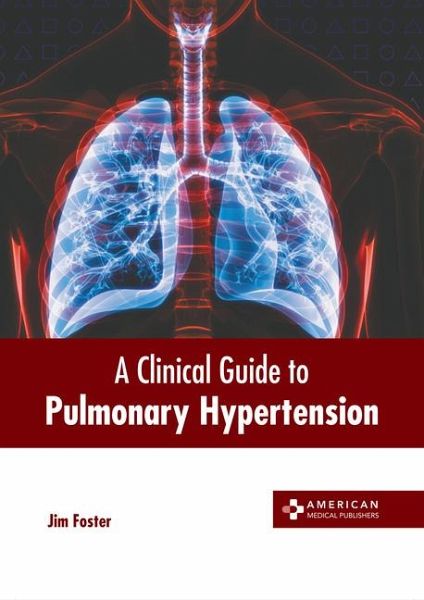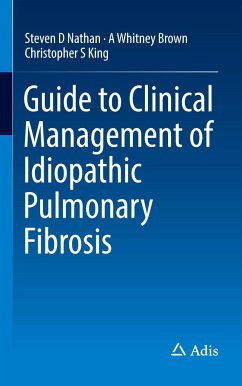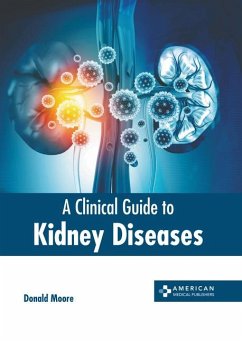
A Clinical Guide to Pulmonary Hypertension
Versandkostenfrei!
Versandfertig in 1-2 Wochen
143,99 €
inkl. MwSt.

PAYBACK Punkte
72 °P sammeln!
Pulmonary hypertension (PH) is a condition in which the blood pressure in the pulmonary arteries becomes too high. Pulmonary arteries are responsible for carrying oxygen-poor blood from the heart to the lungs. Some common symptoms of pulmonary hypertension are shortness of breath, chest pain, fatigue, swelling in ankles, racing heartbeat and decreased hunger. Various risk factors associated with it are heart disease, lung disease, hypoxia, Down syndrome, and presence of blood clots in pulmonary arteries. There are many different kinds of tests for the diagnosis of pulmonary hypertension, such ...
Pulmonary hypertension (PH) is a condition in which the blood pressure in the pulmonary arteries becomes too high. Pulmonary arteries are responsible for carrying oxygen-poor blood from the heart to the lungs. Some common symptoms of pulmonary hypertension are shortness of breath, chest pain, fatigue, swelling in ankles, racing heartbeat and decreased hunger. Various risk factors associated with it are heart disease, lung disease, hypoxia, Down syndrome, and presence of blood clots in pulmonary arteries. There are many different kinds of tests for the diagnosis of pulmonary hypertension, such as right heart catheterization and Doppler echocardiogram tests. The common tests to examine the underlying cause of pulmonary hypertension include blood tests, chest CT scan, chest X-ray, and pulmonary ventilation/perfusion scan. The treatment methods for pulmonary arterial hypertension are diuretics, oxygen therapy, and pulmonary vasodilators. This book explores the clinical aspects of pulmonary hypertension in detail. It consists of contributions made by international experts. This book will prove immensely beneficial to professionals and students involved in the study and managment of this medical condition at various levels.












